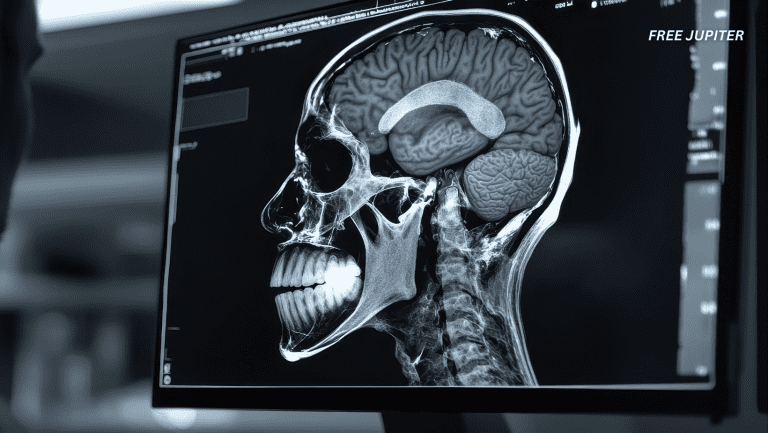Neurologist Reveals The Single Scariest Thing People Are Doing To Their Brains
In the modern world, we are constantly bombarded with distractions, responsibilities, and the pressures of daily life. As we navigate through our hectic schedules, it’s easy to overlook the things that could be harming our brain health. One of the most frightening revelations made by neurologists in recent years is the impact of chronic stress on the brain. While many people are aware of the risks associated with unhealthy eating, lack of exercise, or insufficient sleep, the toll that long-term stress takes on the brain is often underestimated. According to leading neurologists, stress is, hands down, the single scariest thing people are doing to their brains today.

The Brain’s Response to Stress
Stress is a natural response to external pressures, a survival mechanism that helps the body cope with challenges. When faced with a stressful situation, the body releases hormones like cortisol and adrenaline, which prepare us to "fight or flight." In the short term, this response is beneficial, helping us stay alert and react quickly to danger. However, when stress becomes chronic, this once helpful mechanism begins to wreak havoc on the brain.
Neurologists explain that prolonged stress leads to the continuous release of cortisol, a hormone that, in excess, can have a devastating effect on the brain. The hippocampus, the region responsible for memory and learning, is particularly vulnerable to the harmful effects of high cortisol levels. Over time, excessive cortisol can shrink the hippocampus, impairing memory and cognitive function. This is why people under constant stress often experience forgetfulness, difficulty concentrating, and a general sense of mental fog.
Chronic Stress and Neurodegenerative Diseases
One of the most alarming effects of chronic stress is its contribution to the development of neurodegenerative diseases like Alzheimer's and Parkinson's. Studies have shown that long-term exposure to high cortisol levels can increase the risk of these conditions. The brain’s ability to repair and regenerate itself, a process known as neuroplasticity, becomes compromised under chronic stress. This means that the brain is less capable of adapting to new challenges and recovering from damage, making it more susceptible to degeneration over time.
Research also indicates that stress-induced inflammation in the brain can lead to the accumulation of beta-amyloid plaques, a hallmark of Alzheimer's disease. This build-up interferes with brain cell communication, leading to cognitive decline. It’s a sobering thought: the very thing we often consider a normal part of life—stress—can be accelerating the aging of our brain and increasing the likelihood of developing debilitating diseases in the future.
Stress and Mental Health
The impact of chronic stress goes beyond memory and cognitive function—it also plays a significant role in mental health disorders. High stress levels are closely linked to conditions like anxiety, depression, and even post-traumatic stress disorder (PTSD). Stress not only affects the brain's ability to function optimally, but it also alters the balance of neurotransmitters that regulate mood and emotions. This disruption can lead to feelings of sadness, hopelessness, and a lack of motivation.
What’s particularly concerning is that many people don’t recognize the full extent of how stress affects their mental well-being. They might feel overwhelmed or anxious, but attribute it to external circumstances rather than understanding that their brain is being negatively impacted by the chronic stress they’re experiencing. This can delay treatment and result in further cognitive and emotional difficulties down the line.

Taking Control of Stress for Better Brain Health
The good news is that there are steps individuals can take to mitigate the effects of stress and protect their brain health. Neurologists recommend a variety of strategies to help reduce chronic stress. Regular physical exercise is one of the most effective ways to counteract the negative effects of stress, as it promotes the release of endorphins, the brain's natural mood boosters. Additionally, mindfulness practices like meditation and deep breathing can help activate the parasympathetic nervous system, which promotes relaxation and reduces cortisol levels.
Maintaining a healthy diet rich in antioxidants, omega-3 fatty acids, and essential vitamins can also support brain health and combat stress-induced damage. Getting enough sleep, fostering strong social connections, and seeking professional help when needed are other vital ways to protect mental and cognitive well-being.
Conclusion
In conclusion, chronic stress is the single scariest thing people are doing to their brains. Its impact on memory, cognitive function, mental health, and long-term brain degeneration cannot be overstated. As the demands of modern life continue to increase, it is crucial that individuals take proactive steps to manage stress and protect their brain health. By adopting healthier lifestyle choices and seeking support when necessary, we can reduce the harmful effects of stress and preserve our cognitive abilities for years to come. The brain is a powerful organ, but it needs our care and attention to function at its best.
































